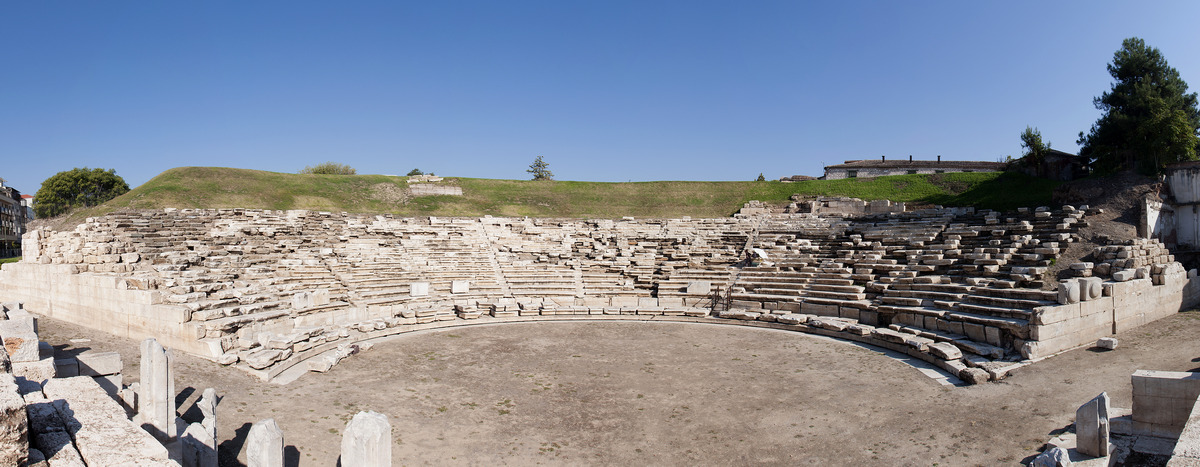Ancient Larisa

The region of ancient Larissa, like today’s, spread in the northeastern part of the Thessalian plain, near the banks of river Penaeus (Pinios). The early history of the city is lost amid uncertain traditions of the area, while from one of the few testimonies of ancient sources and information deriving from the excavations, it may be deduced that the city must have had the same form of social and financial development with the rest cities of Thessaly. By the end of the 7th century BC, Larissa had both the financial and social leadership in Thessaly, playing a key role in the turbulent history of the region.
In the 6th and 5th century BC it was the capital city of Pelasgia, which composed one of the four Thessalian tetrarchies and the head of the monetary union of the Thessalians. In the 4th century BC the Thessalian cities were formed in a state of federation having a politico-economic role, the so called “Community of the Thessalians” and had headquarters in Larissa. The Macedonian sovereignty in the city begins with the advent of Philip II in 357 BC and lasts until 197 BC when the king of Macedonia Philip V’ was defeated by the Roman Titus Quinctius Flaminius in the “Battle of Cynoscephalae”. Roman presence in the region of Thessaly dates back to very early, from the early years of 2nd century BC.
From the outset, the Roman authorities were interested in the organization of this vast geographic region and under their dominion five “regional units” (Thessalians, Magnetes, Perrhaebi, Ainis and Oitans) were established, the number of which progressively narrowed to two, the Thessalians and Magnetes. Larissa seems to have been the most important city of the four cities (Larissa, Demetrias, Thebae Phtioticae and Ypati) contained in the two regional units, also the well- known capital of the new “Thessalian Unit”.
During the Roman Empire, both Larissa and the vast area of Thessaly gained enough profits due to the adopted politics which favored the romans and it was even proclaimed in 10 BC as an Augusta city (a noble and respected city) by Octavian Augustus. After his command, the city gradually declined until it turned into an insignificant city of the Roman Empire. Also, the infamous Thessalian unit slowly loses its strength and acquires a rather decorative role.
Latest news
02/10/2014
